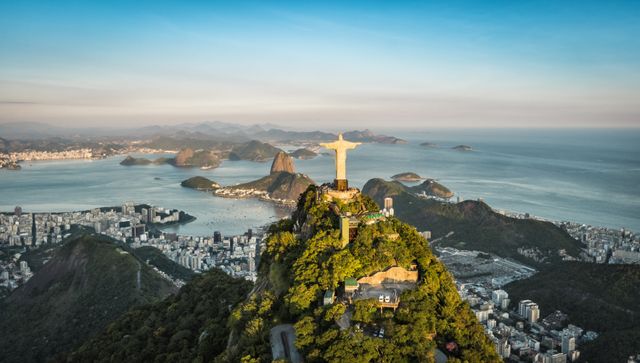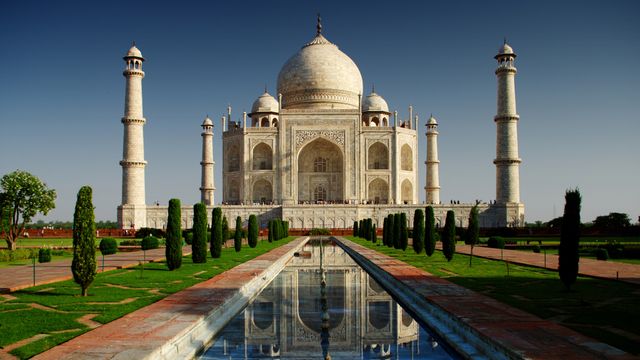11.5.4
Tensions within Nations
Nationalist Movements in Europe
Nationalist Movements in Europe
Globalisation, migration and westernisation can create disunity and conflict within nations. Strong nationalist movements have emerged in many European countries.


UKIP
UKIP
- UKIP won 12.7% of the vote in the 2015 General Election, campaigning for a departure from the European Union.


Scottish independence
Scottish independence
- The Scottish campaign for independence culminated in a referendum in 2014 saw 44.7% of the Scottish electorate voting to separate from the UK.
- Again Scotland wanted to stay in the EU.


Catalonian independence
Catalonian independence
- Strong nationalist movements have arisen, seeking to establish independent, smaller states – separatism (a desire to have autonomy within, or independence from, a country).
- Catalonia is a prosperous area of Spain that contains Barcelona. They speak Catalonian, instead of Castilian Spanish like the rest of the country.
- However, this is not necessarily a new phenomenon. The Basque Country in Spain, where they speak Basque, campaigned for independence for years, with the terrorist group ETA supporting this campaign for independence.
- However, Catalonia, although they are separatist, still wish to remain in the EU.


Kosovo
Kosovo
- Kosovo is a partly recognised state that declared independence from Serbia in 2008. UN peacekeeping troops are in Kosovo and it is a candidate with the potential to join the EU.
Tensions in BRICS Countries
Tensions in BRICS Countries
There are nationalist tensions and disunity in many BRICS nations:


Brazil
Brazil
- Indigenous tribes living in the Amazon are under threat from land grabbing and deforestation in the region.
- The corrupt leadership of Dilma Rousseff led to disquiet and Michel Temer, the previous leader, is also tainted with reports of corruption.
- Much of the population is very poor, but Brazil spent $15bn on the 2014 Football World Cup and $5bn on the 2016 Olympics.
- The return on these kind of sporting events is uncertain. Andrew Zimbalist's research suggests these events are not value for money.


Russia
Russia
- Russia is the largest country on Earth.
- There are several 'nations' within Russia, from nomadic reindeer hunters in the very north of Russia to Chechnya.
- Chechnya in the south of Russia is seeking autonomy. There have been disputes since the breakup of the USSR in 1991. In 2004, 334 people died in the Beslan School siege involving some Chechan militants.


India
India
- The Kashmir region in the northwest of India is a disputed territory, where both India and Pakistan claim ownership. 60% of the population in Kashmir are Muslim, making it the only majority-Muslim region in India.
- There is a caste system in India, where the colour of someone's skin and their position in the caste system determines their opportunities and treatment.


China
China
- There are separatist groups in Tibet and in the west of China, where the Uyghur ethnic group live.
- Internally in China, there has been a lot of rural-to-urban migration. The hukou system is a government registration system of households. This means that migrants don't have full rights when they move into urban areas.
1Tectonic Processes & Hazards
1.1Tectonic Processes & Hazards
1.2Natural Disasters
1.3Natural Disaster Case Studies
1.4Trends & Patterns
2Option 2A: Glaciated Landscapes & Change
2.1Glaciated Landscapes Over Time
2.2Periglacial Landscapes
2.3Glacial Processes
2.4Glacial Landforms
3Option 2B: Coastal Landscapes & Change
3.1Coastal Landscapes
3.2Coastal Erosion & Deposition
3.3Coastal Risks
4Globalisation
4.1Globalisation
4.2Negatives of Globalisation
4.3Global Shift
4.5Culture
4.6Measuring Development
5Option 4A: Regenerating Places
5.1Types of Economies
5.2Function of Places
5.3Regeneration
5.4Regeneration Case Studies
6Option 4B: Diverse Places
6.1Population Structure
6.2Past & Present Connections
6.3Urban & Rural Spaces
6.4Diversity
6.5Urban & Rural Case Studies
6.6Case Study - Tower Hamlets
6.7Case Study - Sturton-le-Steeple
7The Water Cycle & Water Insecurity (A2 only)
7.1Hydrological Processes Global to Local
7.2Influences on the Water Cycle
7.3Water Insecurity
8The Carbon Cycle & Energy Security (A2 only)
8.1The Carbon Cycle
8.2Energy Consumption
8.3Alternative Energy
8.4Growing Demand for Resources
9Superpowers (A2 only)
9.1Superpowers
9.2Hard & Soft Power
9.2.1Hard & Soft Power
9.2.2Emerging Powers - China Rivalry
9.2.3Emerging Powers - Chinese Sources of Power
9.2.4Emerging Powers - Brazil
9.2.5Emerging Powers - Russia
9.2.6Emerging Powers - India
9.2.7Theories of Development
9.2.8Power Case Studies: Chinese One Belt One Road
9.2.9Power Case Studies: Pakistan Nuclear Arms
9.2.10Power Case Studies: OPEC
9.3IGOs, TNCs & Alliances
10Option 8A: Health & Human Rights (A2 only)
10.1Human Development
10.2Role of Governments & IGOs
10.3Human Rights
10.4Interventions
11Option 8B: Migration & Identity (A2 only)
11.1Globalisation & Migration
11.2Consequences of Migration
11.3Nation States
11.4Responses to Global Migration
Jump to other topics
1Tectonic Processes & Hazards
1.1Tectonic Processes & Hazards
1.2Natural Disasters
1.3Natural Disaster Case Studies
1.4Trends & Patterns
2Option 2A: Glaciated Landscapes & Change
2.1Glaciated Landscapes Over Time
2.2Periglacial Landscapes
2.3Glacial Processes
2.4Glacial Landforms
3Option 2B: Coastal Landscapes & Change
3.1Coastal Landscapes
3.2Coastal Erosion & Deposition
3.3Coastal Risks
4Globalisation
4.1Globalisation
4.2Negatives of Globalisation
4.3Global Shift
4.5Culture
4.6Measuring Development
5Option 4A: Regenerating Places
5.1Types of Economies
5.2Function of Places
5.3Regeneration
5.4Regeneration Case Studies
6Option 4B: Diverse Places
6.1Population Structure
6.2Past & Present Connections
6.3Urban & Rural Spaces
6.4Diversity
6.5Urban & Rural Case Studies
6.6Case Study - Tower Hamlets
6.7Case Study - Sturton-le-Steeple
7The Water Cycle & Water Insecurity (A2 only)
7.1Hydrological Processes Global to Local
7.2Influences on the Water Cycle
7.3Water Insecurity
8The Carbon Cycle & Energy Security (A2 only)
8.1The Carbon Cycle
8.2Energy Consumption
8.3Alternative Energy
8.4Growing Demand for Resources
9Superpowers (A2 only)
9.1Superpowers
9.2Hard & Soft Power
9.2.1Hard & Soft Power
9.2.2Emerging Powers - China Rivalry
9.2.3Emerging Powers - Chinese Sources of Power
9.2.4Emerging Powers - Brazil
9.2.5Emerging Powers - Russia
9.2.6Emerging Powers - India
9.2.7Theories of Development
9.2.8Power Case Studies: Chinese One Belt One Road
9.2.9Power Case Studies: Pakistan Nuclear Arms
9.2.10Power Case Studies: OPEC
9.3IGOs, TNCs & Alliances
10Option 8A: Health & Human Rights (A2 only)
10.1Human Development
10.2Role of Governments & IGOs
10.3Human Rights
10.4Interventions
11Option 8B: Migration & Identity (A2 only)
11.1Globalisation & Migration
11.2Consequences of Migration
11.3Nation States
11.4Responses to Global Migration
Unlock your full potential with Seneca Premium
Unlimited access to 10,000+ open-ended exam questions
Mini-mock exams based on your study history
Unlock 800+ premium courses & e-books